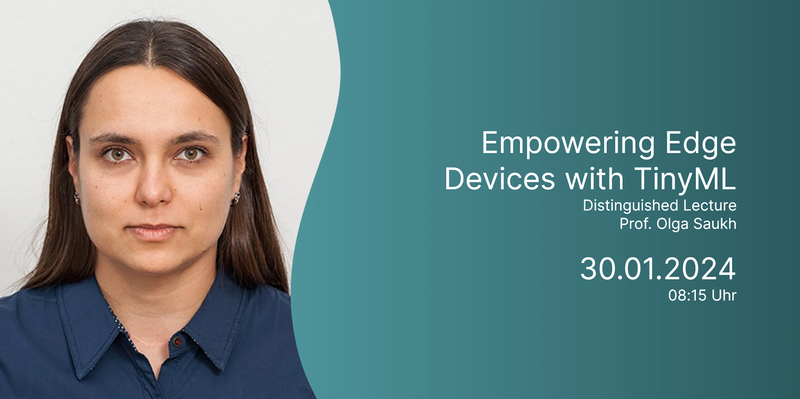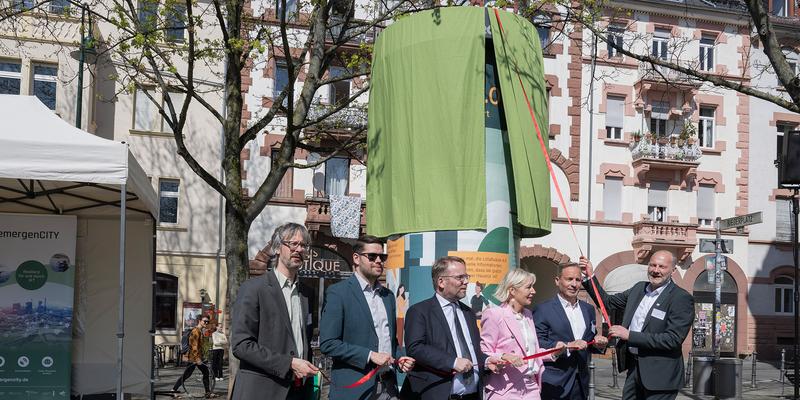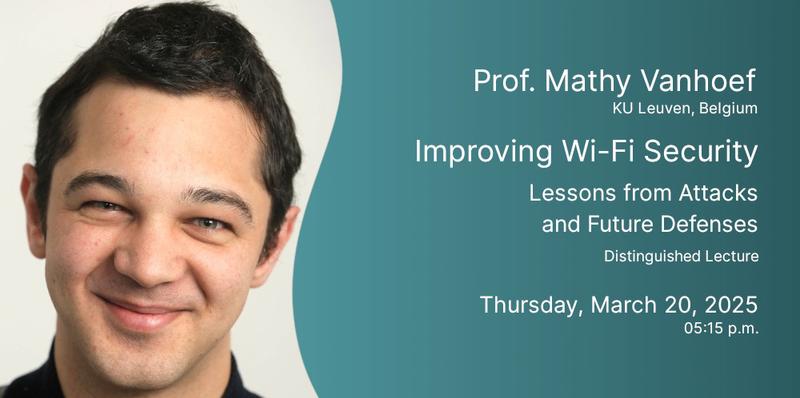emergenCITY and SFB MAKI cordially invite you to the Distinguished Lecture with Professor Olga Saukh on January 30, 2024 at 08:15 a.m.. The professor from TU Graz and the Complexity Science Hub Vienna (CSH) will talk about “Empowering Edge Devices with TinyML”. The lecture is dedicated to the theoretical foundations of efficient machine learning. The talk is open to the public and will be broadcasted in Zoom. Please register for the Zoom link at: office@emergencity.de
- Date: Tuesday, 30.01.2024, 08:15 - 09:45 a.m.
- Speaker: Prof. Olga Saukh, TU Graz und Complexity Science Hub Vienna (CSH)
- Title: “Empowering Edge Devices with TinyML”
- Registration: You will receive the Zoom link for the event via e-mail to office@emergencity.de
About the lecture:
This lecture introduces TinyML, a groundbreaking approach that integrates machine learning with low-power microcontrollers, offering a sustainable and globally scalable computing solution. TinyML stands out for its minimal power requirements, independence from internet connectivity, and its ability to perform complex sensor analytics directly on devices, addressing major concerns in bandwidth, energy, and privacy. Despite challenges in on-device training and model deployment, advancements in frameworks like TensorFlow Lite for Microcontrollers are expanding TinyML’s accessibility and impact. This technology not only aligns with the United Nations’ Sustainable Development Goals but also presents a significant leap in the fields of agriculture, climate change mitigation, and beyond.
Speaker’s Bio:
Olga Saukh is associate professor and leader of the Embedded Learning and Sensing Systems group at TU Graz, Institute of Technical Informatics (ITI) and Complexity Science Hub Vienna (CSH). She holds a habilitation degree in Embedded Systems from TU Graz since 2020. She did her postdoctoral training at ETH Zurich, Computer Engineering and Networks Laboratory. Following her Bachelors in Applied Mathematics from the National University of Kyiv, Ukraine and her Masters in Applied Computer Science from the University of Freiburg, Germany, she received her Ph.D. in Computer Science from the University of Bonn, Germany. Her research focuses on efficient machine learning, TinyML, embedded sensing and edge computing. She is interested in the theory and mathematics of machine learning, engineering and experimenting with AI-enabled systems, and in solving real-world challenges. Her publications have been accepted at top conferences and journals in machine learning and IoT communities, including ICLR, IPSN and ToSN.



